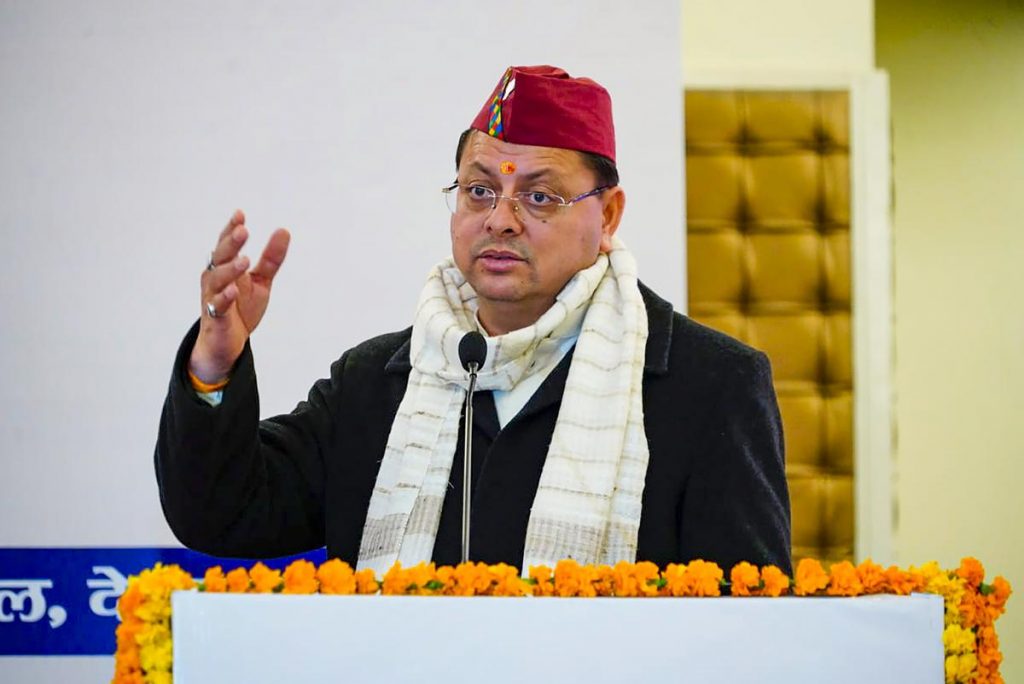BJP-ruled Uttarakhand may soon become the second state in India and the first after Independence to have a Uniform Civil Code (UCC). Goa has a UCC since the Portuguese rule. The final draft of the UCC was approved by the Uttarakhand Cabinet Sunday, paving the way for its tabling in the state Assembly in a special four-day session that begins Monday. A state government-appointed panel that drafted the UCC had submitted its voluminous 749-page report to the Chief Minister Pushkar Singh Dhami, 2 February. “It is yet another step towards the fulfilment of a commitment made to the people of the state before the Assembly polls of 2022. The long-awaited moment has arrived…,” Dhami said after receiving the draft.
Though the contents of the draft have not been made officially public, it was learnt that a blanket ban on polygamy and child marriage, a common marriageable age for girls across all faiths and enforcing similar grounds and procedures for divorce are among the major recommendations of the five-member panel, headed by retired Supreme Court judge Ranjana Prakash Desai. Besides, boys and girls will have equal inheritance rights, registration of marriages will be made mandatory and the marriageable age for girls would be increased so that they can become graduates before marriage, while another somewhat radical proposal says couples whose marriages are not registered would not get any government facilities.
The most important clauses could be connected to Islamic practices of ‘halala’ and ‘iddat’ which could be banned. Another contentious recommendation of the panel is that the declaration of live-in relationships will be mandatory, though it will be a self declaration in a legal format.
The Scheduled Tribes which constitute 3 per cent of the Himalayan state’s population have been left out of the purview of the UCC. This indicates hesitation to deal with the distinctiveness of tribal social customs. One can easily imagine what would be the consequences if a similar situation should arise in Orissa with the ST and SC being well over 40% of the total population of the state.
In a multi-religious and multi-ethnic country like India, a common personal law has always been contentious. Supporters of the BJP have been vocal in their advocacy for a UCC as it is perceived to be interfering in Moslem society. However, in the larger Hindoo fold that includes myriad tribes and castes, bringing in a common law won’t be an easy task for any government just because of the sheer diversity within the Hindoo society.
Meanwhile, other BJP-ruled states are planning to use the Uttarakhand UCC draft as a template. Earlier this month, Assam Chief Minister Himanta Biswa Sarma said: “I am waiting to see the UCC bill of Uttarakhand and once that is done, we will bring the same legislation” with some modifications. The Assam government will introduce a bill to end polygamy in the state during the budget session of the Assembly beginning 5 February.
Similarly, Keshav Prasad Maurya, Deputy Chief Minister of Uttar Pradesh, has said that “wherever the BJP is (in power) the possibility of bringing UCC has been and will always be there,” adding it will introduced “at the right time.”
The timing of adopting a UCC in Uttarakhand months ahead of the Lok Sabha elections is crucial. Close on the heels of the Ram temple consecration, the ruling party at the Centre wants to whip up communal passions by raking up the UCC issue. Communal polarisation is the last resort of BJP when it fails on economic and social justice fronts.
UCC is one of the three core promises of the RSS and BJP made decades ago, and the only one that is yet to be fulfilled. The other two — construction of Ram temple at Ayodhya and the abrogation of Article 370 that took away the autonomous status of Kashmir — have been achieved.
Apart from these religion related issues, the BJP has never offered any tangible pro poor, pro women economic policies that it intends to implement. In today’s world, increase in productivity and generation of income by individual households should be considered as primary indicators of economic growth. The PM Garib Kalyan Anna Yojana, first launched in 2020, has again been re-launched in February 2023, valid for a five year period, and is targetted to benefit 80 crore (800 million) ‘impoverished population’ which needs basic food for survival. That itself indicates a terrible economic environment currently in the country.
